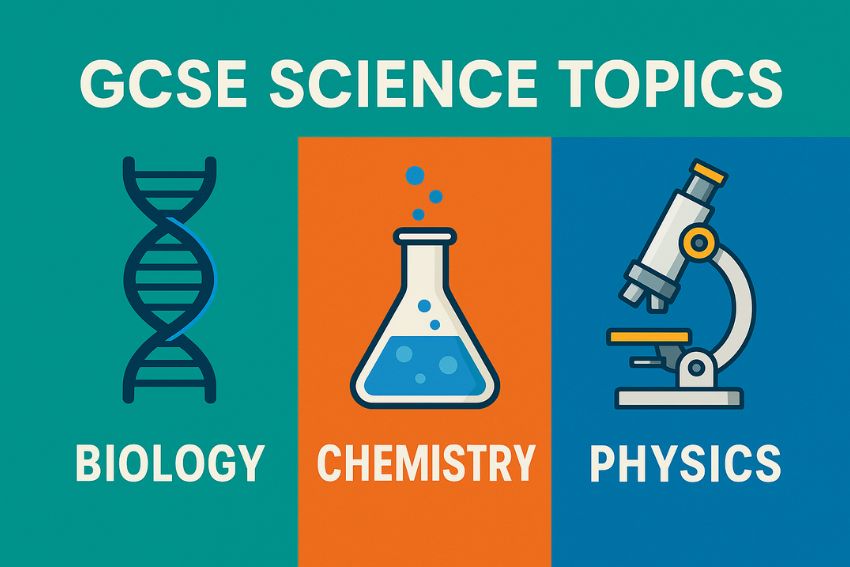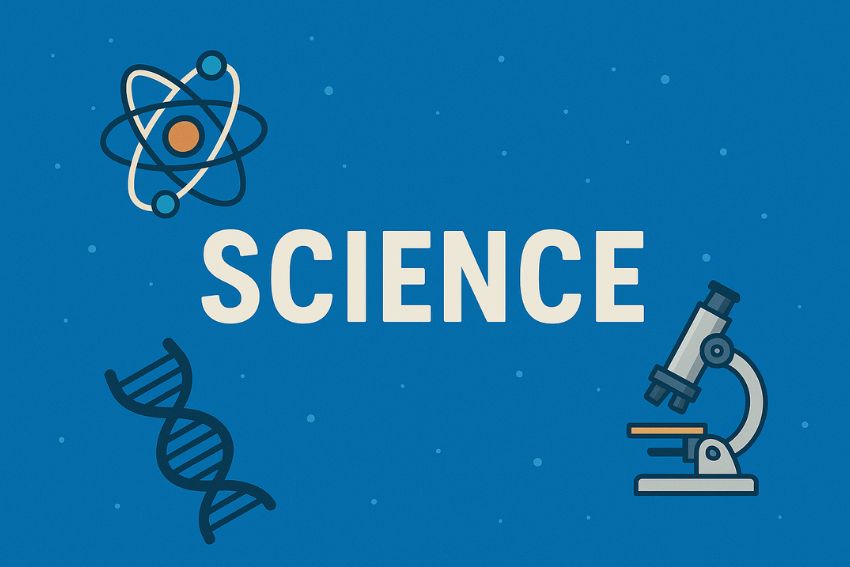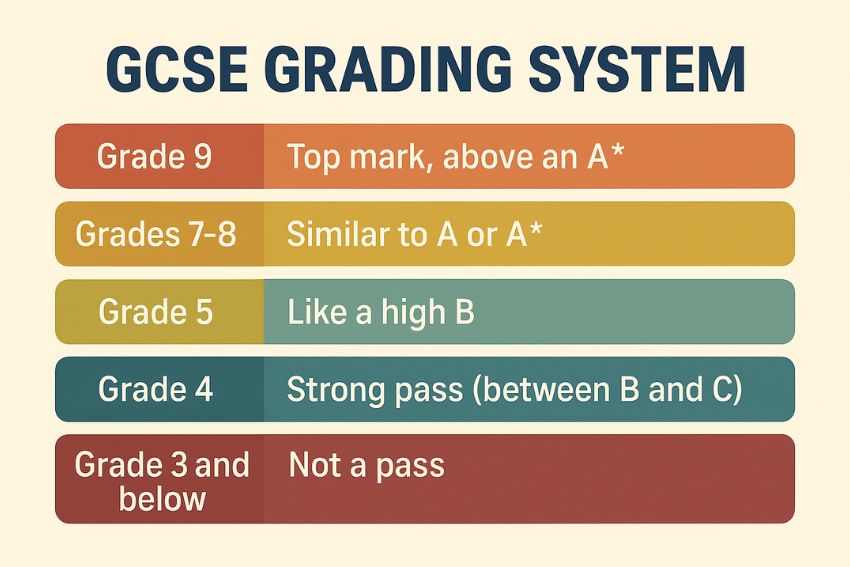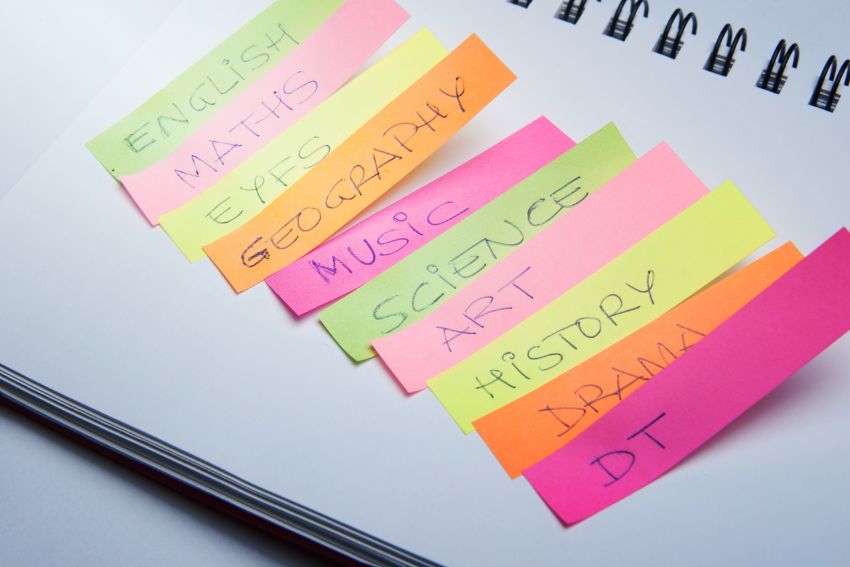How to Master GCSE Science: Revision Tips, Exam Topics & Grading
What is GCSE Science, and why is it useful? Science is one of the most important subjects you will study in secondary school.
It’s not just about learning facts; it’s about understanding how the world works. From cells and circuits to chemical reactions and forces, this subject covers a wide range of topics that build critical thinking skills.
Whether you’re aiming for college, sixth form, or a future career in healthcare, engineering, or IT, a good science grade can open doors.
But let’s be honest, revising for science can feel overwhelming. There are so many topics to cover and lots of tricky terms to remember.
This blog will help students and parents understand what’s covered in this subject, how to revise smarter, and which major topics to focus on.
So, if you’re wondering how to plan GCSE science revision, you’re in the right place.

GCSE Science Curriculum Explained: Combined vs Triple Science
Before organising the revision schedule, it’s important to understand how the GCSE Science course is structured. There are two main routes: Combined Science and Triple Science.
So, what’s the difference?
If your child is studying Combined Science, they’ll cover Biology, Chemistry, and Physics, but with slightly less content in each. It leads to two GCSE grades instead of three.
On the other hand, Triple Science (sometimes called Single Science) means students study all three sciences in more detail and earn three separate GCSEs. It’s often chosen by those who enjoy science or want to explore it further.
Now, the good news? Many of the GCSE science topics overlap across both routes. So no matter which path your child is on, the core ideas remain the same.
Understanding this structure helps make revision more targeted, and less stressful.
Core GCSE Science Topics You Need to Know
Now that you know the structure, let’s break down the GCSE science topics you or your child will actually study. Whether it’s Combined or Triple Science, these are the key ideas to focus on.
🔬 Biology
- Cell structure and function
- Photosynthesis and respiration
- Infection and response
- Inheritance, variation, and evolution
- Ecology and ecosystems
⚗️ Chemistry
- Atomic structure and the periodic table
- Chemical reactions and bonding
- GCSE chemistry equations and formulae
- Quantitative chemistry equations (like moles and mass calculations)
- Organic chemistry and chemical analysis
⚡ Physics
- Energy and electricity
- Forces and motion
- Waves and electromagnetic spectrum
- Magnetism and electromagnetism
- Space physics (Triple only)
These topics form the foundation of the exams, so it’s important to get familiar with them early. Don’t worry if they seem like a big challenge at first; we’ll show you how to revise them effectively in the next section.

How to Revise for GCSE Science: Tips That Actually Work
In fact, revision doesn’t need to feel overwhelming. With the right approach, you can make progress faster and retain information for longer.
Here are some proven strategies to make your GCSE science revision more effective:
1. Break it down
Don’t try to revise everything at once. Focus on one topic at a time using your specification as a guide.
2. Use active recall
Test yourself regularly. Flashcards, quizzes, or simply writing out what you remember helps to retain the information.
3. Try past paper questions
In reality, nothing beats practising real exam questions. This helps you get used to the format and timing.
4. Use a science GCSE revision guide
Then, choose one according to your exam board. It will cover everything you need without the extra fluff.
5. Teach someone else
If you can explain a topic in simple terms, you really understand it. Try teaching a friend or family member!
6. Mix your methods
In addition, watch videos, make mind maps, or join online revision platforms. Different tools suit different learners.
Small, consistent revision schedules always work better than rushed study sessions. So, choose a method that works for you, and stick with it.
Use AQA GCSE Science Past Papers to Prepare Like a Pro
Once you’ve revised a topic, the best way to test your understanding is by practising with past papers.
GCSE Science past papers show you exactly what to expect in the real exam. You’ll get familiar with the style of questions, how they’re marked, and where you need to improve.
If you’re studying Combined Science, start with AQA combined science past papers. These include questions from Biology, Chemistry, and Physics, all in one set.
For Triple Science students, it’s better to use subject-specific papers. Try working through:
When you mark your answers, don’t just check if they’re right or wrong. Look at the mark scheme and learn what the examiner is looking for.
And remember, the more GCSE past papers you complete, the more confident you’ll feel when the real exam arrives.
GCSE Science Grading System: What Grade Do You Need to Pass?
Now that you’ve seen how to revise, you might be wondering, “What grade do I need to pass?”
The GCSE science grading system uses numbers instead of letters. Grades range from 9 (the highest) to 1 (the lowest). A Grade 4 is known as a standard pass, while a Grade 5 is a strong pass.
If you’re aiming to move on to A-Levels or certain college courses, many require at least a Grade 5 in science.
Here’s a quick breakdown to help you understand how science is graded:

How to Build Your Own GCSE Science Study Plan
Now that you know what to revise and how to do it, it’s time to make a plan that works for you.
Also, creating a personal GCSE science revision timetable doesn’t need to be complicated. In fact, a simple and consistent routine often works best. Here’s how to get started:
1. Look at your exam dates
Mark them on a calendar so you know how much time you have to prepare.
2. Divide your subjects
Split your science time between Biology, Chemistry, and Physics, or focus more on your weaker areas.
3. Set weekly goals
Decide what topics to cover each week. Use a science GCSE revision guide or your school’s specification to stay on track.
4. Make time for practice
Include time to complete past papers and go over what you’ve learned. This helps your memory and builds exam confidence.
5. Keep it flexible
Life happens, so don’t worry if you miss a session. Just adjust and carry on.
Remember, a plan helps you stay focused and feel more in control. And with everything you’ve learned in this guide, you’re already off to a great start.
Conclusion
Therefore, preparing for your GCSE Science exam might feel like a big task, but with the right approach, it’s completely manageable.
We’ve explored the difference between Combined and Triple Science, explored must-know science topics, shared top revision tips, and shown how to use past papers to boost your confidence.
The most important thing now is to start. Even small steps each day will move you forward. Make your GCSE science revision a habit, not a last-minute panic.
So, if you or your child needs extra support, online GCSE tutors can make a huge difference. They can explain tricky topics, guide revision, and build confidence, all from home.
No one gets top marks overnight, but with focus and support, you’ll get there. The best time to start your revision is now.
FAQs:
How many Science GCSE papers are there?
It depends on the course:
- Combined Science students take six papers, two each for Biology, Chemistry, and Physics.
- Triple Science students also take six papers, but they count toward three separate GCSEs.
Each paper tests different GCSE science topics, so it’s important to revise all areas and use AQA combined science past papers or subject-specific ones to practise.
What is Double Science GCSE?
Double Science is another name for Combined Science GCSE. It includes Biology, Chemistry, and Physics, all taught together.
Students receive two GCSE grades based on their performance across all three subjects. This option still covers key GCSE science topics, but with a more balanced approach.
What is Triple Science GCSE?
Triple Science means studying the three sciences separately. Students sit individual exams in Biology, Chemistry, and Physics.
This path is often chosen by students who enjoy science or are thinking about science-related A Levels or careers. It covers more detailed content, including advanced quantitative chemistry equations and extended practicals.
What is the difference between Combined and Triple Science?
The main difference comes down to the number of GCSEs earned and how much content is covered.
Triple Science (also called Single Science) means students take separate GCSEs in Biology, Chemistry, and Physics. It includes more topics and leads to three GCSEs.
Combined Science, based on the GCSE Combined Science specification, covers the same core ideas but with less depth. It combines all three sciences into one course and awards two GCSEs.
How are Combined Science grades calculated?
In Combined Science, students sit exams in all three sciences. The marks from these papers are combined and used to calculate two GCSE grades.
These could be, for example, 7-6 or 5-5. The final grade pair reflects overall performance, not one grade per subject.








